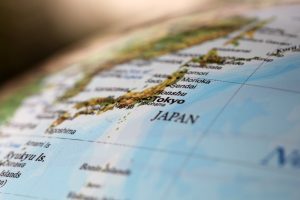A newly published report co-written by 11 researchers of Japanese foreign policy and international relations, intending to sketch a new blueprint for Japanese foreign policy, may sound provocative – even naïve – to some observers. In the publication entitled, “Asia’s Future at a Crossroads: A Japanese Strategy for Peace and Sustainable Prosperity,” the co-authors urged Japan to consider participation in the China-led Asian Infrastructure Investment Bank (AIIB); to move forward on normalizing a diplomatic relationship with North Korea; and to recognize that there is a territorial dispute with China over the Senkaku/Diaoyu Islands (a reality the Japanese government has so far refused to acknowledge). The authors also suggested that Japan speak out against Taiwan independence, signaling reassurance toward China.
However, if the report seems out of touch with mainstream foreign policy thinking, that is exactly the point. The authors have grown wary of the current consensus over the direction of Japan’s foreign policy at large. In the report, they raise concerns by pointing out that the latest National Security Strategy had a strong emphasis on “power politics (including military capabilities) and geopolitics as well as economic security,” which may aggravate the already precarious security environment in the Asia-Pacific, increasingly being defined by the China-U.S. rivalry.
As an alternative to the current posture, the authors argue for a bigger role for diplomacy. They insist that a more “multifaceted and multilayered approach” be adopted as Japan’s foreign policy in order to deal with not only regional issues but also transnational ones, while simultaneously pursuing regional integration.
While the report has an aspirational tone, it poses a rare question to a Japanese public that has largely recused itself from playing a role in shaping international affairs: What can Japan do? In response, the authors state that Japan’s role should be to “exercise leadership to help mitigate the competition between the U.S. and China in Asia through constructive diplomacy, thereby reducing the danger of great power war in the region.”
However, in order to preserve peace and promote prosperity in the region, the authors don’t claim that Japan has to shoulder the burden alone. They argue that Japan should execute a “middle power diplomacy” in concert with nations such as India, Australia, and South Korea, even along with the ASEAN nations, “which aims toward a more autonomous foreign policy that is close to but not solely dependent on the United States” – and also China.
At a glance, the policy proposals that were laid out by the scholars sound like music to a large number of Japanese, both from the left and the right, that have criticized Japan’s foreign policy as being too dependent on the United States and lacking autonomy. However, the Japanese government has put further prioritization on a military build-up, which would automatically lead to closer relations with the U.S., Japan’s primary security guarantor. That the Japanese public has largely acquiesced to this approach underscores the reality that many consider themselves physically endangered by the worsening security environment, which leaves little room for the diplomacy that the authors believe is being disregarded.
Moreover, Sugawa Kiyoshi, a senior researcher at the Tokyo-based East Asian Community Institute, and one of the sponsors of the report, argued that Japan doesn’t know how much leverage the country has over the U.S., which may also prevent the public from appreciating the details of the report.
“We think that Japan underestimates the leverage it owns vis-à-vis the United States,” Sugawa said. “For example, the United States will have big trouble in defending Taiwan without bases in Japan. If Japan is determined to take advantage of hosting U.S. bases in Japan, the United States would have to listen to Japan’s opinion.”
What may be the most controversial aspect of the report is its recommendation for more engagement with China, although most Western policymakers and experts seem to believe that era has ended. Sugawa acknowledged that some people in Japan would reflexively dismiss calls for closer relations with China, perceiving such advocacy as “pro-China,” a term that is beginning to take on a toxic connotation in Western politics.
Japan’s foreign policy debates have been constrained by futile domestic controversies and have been overly focused on constitutional-related matters that may seem trivial from the outside. Those sorts of debates involve queries over whether the Japanese Self-Defense Force is a military or not; whether a clear line could be drawn between individual and collective self-defense; and how the former is deemed constitutional while the latter is not. As a result, the Japanese people have failed to recognize themselves as a member of the international community and to take the initiative for the betterment of it.
The report may seem strange to many Japanese who are used to discussing Japan’s foreign policy from a narrow perspective. Many in Japan take for granted that a collision course between China and North Korea is destined, which partly explains the ongoing reinforcement of defense capabilities at a pace unprecedented in the post-war era. However, the significance of the report is that it calls for diplomacy at a time when few seem to understand its value. The approach that the authors dubbed as “middle power diplomacy” shows a path in which nations don’t have to be “great powers” to influence the outcome of international affairs. Moreover, even the bold initiatives that had been enshrined in a report have value in them considering the rigidity of the current debates, and the possibility that such innovative policy proposals may create a breakthrough in future international relations
The reality on the ground and the spirit reflected in the report have a huge gap to fill, and the authors still have a long way to persuade the public that their proposal is worth considering. Whether the content of the report will be relevant and shape actual policy is dependent upon the scholars that work on it, and the backers that want to spread the gospel.

































